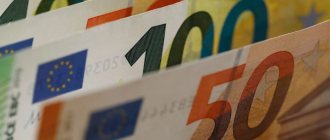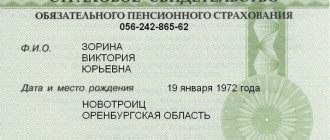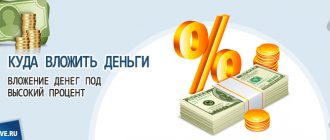Business, Profitable cars, Apartment building, Commercial real estate, Cryptocurrencies, Real estate, Financial literacy, Assault structures
A crisis is a decline in the economic development of a country. It is often accompanied by a strong change in the exchange rate of the state currency. During the active phase of any crisis, inflation increases, unemployment rises, and your investments may turn out to be unprofitable. In this article we will look at:
- how to invest correctly during a crisis,
- what to pay special attention to so as not to lose your savings,
- what opportunities to use to invest profitably in any crisis,
- what deposits and mutual funds, as well as bonds and other securities can be profitable during an economic downturn,
- how to make money on real estate during a crisis,
- what other tools can be used.
It is possible to earn money and increase savings in a crisis situation. During a crisis, many panic sell assets, prices fall, which gives freedom to choose and make a profitable purchase. You need to know how to use this. Read the article and learn life hacks from professional investors.
Features of investment in a crisis
Investing is one of the most attractive tools for generating passive income. Thanks to competent actions, any person can receive income from investments in different types of assets without working. This is easy to do when the economy is growing and prospering. It is much more difficult to obtain profitability during a crisis, during falling prices, quotes and mass panic. In this situation, most people only think about saving their savings. But despite the fact that a financial and economic crisis can lead to economic collapse, even in such a situation, some people improve their financial situation.
Major crises in Russia usually occur once every 15-20 years. The latest is the crisis of 2009-2009. Small-scale crises overtake the country once every 5-10 years, and this has long become the norm for our state. Don't expect this situation to ever change: the economy will always develop in cycles. It is wiser to adapt and develop tactics on how best to act in a crisis.
To do this, you need to study the theory, build a financial strategy and diversify your portfolio to avoid collapse. Knowledge of the market and theory allows you to adapt to the current situation and wisely select investment instruments from a large number of offers on the market.
Watch the video where the CEO of “Territory of Investment” Andrey Merkulov talks about investments during the crisis.
First of all, it is important for you to upgrade your financial thinking. For example, at online conferences “Territories of Investing” we play “Cash flow”, and sometimes the whole team is disqualified because of just one mistake, and they have to start over. In life, a single decision can have equally disastrous consequences. The game simulates situations in which you can see mistakes and evaluate financial decisions. This helps you understand what you are doing wrong and why you cannot achieve the results you need. As people play, they become more aware of these mistakes, and they also see how others act in similar situations and what results they get. This is very useful for improving financial thinking.
What can you invest in during a crisis?
Investment instruments that can be used in a crisis are divided into several categories.
Own education
For example, investments in competent learning of a foreign language (one of the European, classical English or increasingly popular Asian languages) will pay off in the near future. Thanks to your knowledge of languages, you will be able to get a higher-paying and promising position and succeed in it.
You can learn a new profession or skill that will bring you income in the future. Your value on the labor market will increase, then your salary will increase, which means your investment opportunities will increase. Don’t forget that you and your professionalism are the main thing you have and the best guarantee in any crisis. Therefore, investing in your own education is the first thing you should pay attention to.
Own business
Investing in your project is promising not only in times of crisis. A successful business will give you a high cash flow, allow you to cover your basic needs (housing, clothing, food, education, travel) and give you the opportunity to invest your free money.
But you need to understand that business assumes high responsibility for your actions, as well as for other people - your hired employees. Not everyone can take on such responsibility.
Portfolio investment
If the first ones managed to complete the first two points, it’s time to think about investing in various types of securities and other instruments. The most popular are shares and bonds of stable companies, investments in startups, the cryptocurrency market, real estate, cars and even websites. With the right approach, you can make money on each of these tools, but it is advisable to use several of them at once.
Investing in antiques
Over time, antiques and works of art rise in value. The exception is furniture. It has a limited shelf life, especially if stored and maintained improperly. Jewelry, coins, paintings, watches and other antiques become more expensive over time. The advantage of such an investment is the constant increase in the price tag for an antique item.
Disadvantages - the risk of purchasing a fake copy or an item with an inflated price tag (or later selling it too cheap). Moreover, as with gold, such things rise in price slowly. To feel the profitability of such an investment, you need to wait more than one year. During stagnation, the need for finance can arise instantly; there is a risk of selling antiques, at best, at the same price at which it was purchased. At worst, the price will be even lower.
Attention!
Tangible assets are not the only investment options. During a crisis, it is important to improve your health by investing in yourself and remaining relevant in the labor market.
First steps for investing in a crisis
The most frequently asked question to financial experts is how to survive the crisis and not lose your savings?
The very first step is to put your finances in order and allocate at least 10% of your income to investments. To do this, you need to get rid of at least part of your debts, reduce your financial burden and try to increase your income, as well as create a financial cushion.
A certain amount of funds stored in accounts, deposits, cards and cash circulation will allow you to freely dispose of the same assets if a crisis situation occurs. Without a certain safety net, investing in certain tools will be dangerous.
If you lose your job or your income drops sharply, you will have to withdraw funds - for example, sell purchased shares or real estate, as well as other assets. Doing this during a crisis is extremely unprofitable, because... During a crisis, prices fall sharply. Therefore, you need a financial cushion that will allow you to survive such a situation without selling anything at a loss. It is recommended to keep the airbag in the currency basket.
A basket of currencies is a deposit placed in three or four currencies. The most popular are dollars, euros, rubles and British pounds.
It is necessary to place a foreign currency deposit in order to reduce the risk of depreciation of any currency. It is convenient to withdraw a ruble deposit at any time without the need for conversion; other currencies insure your savings against the depreciation of the ruble.
After creating a financial cushion, it makes sense to invest in:
- securities,
- business (including someone else’s);
- cars,
- profitable sites,
- real estate,
- cryptocurrencies.
One of the main objectives of an investor is to acquire an asset inexpensively. Then there are two possible options:
- Its sale is higher than the original cost.
- Receiving passive income from this asset.
The crisis provides an opportunity for a cheap purchase, that is, it can help the investor. For example, over the past 20 years, on average, real estate prices have increased sixfold. This is a great opportunity to make money. For example, you can invest in buying cheaper real estate to rent it out. Investment returns can be increased by using leverage.
Financial crisis. Investment strategy before the crisis.
Quite recently, there was a publication on the topic of indicators of an approaching economic crisis. Specific indicators and their current meanings were discussed there.
You can also watch a video on this topic at the following link:
The topic is relevant in the investment community. Strictly speaking, the classic passive investor should not be concerned about the financial crisis. But, everyone has their own goals and their own current investment situation.
For example, this topic is very important to me, because I have been investing for a long time and my capital is invested in various securities on the global stock market. In addition, in my investment portfolio, which today has a size of more than 20 million rubles, there is now about 30% of the cash, less than half of which is in rubles. Therefore, I am watching developing events closely. I think this is interesting to you too.
Analysts and experts give different advice on how to prepare for a crisis. Some people advise urgently purchasing physical gold, while others advise investing in salt and matches. The range of advice is, as always, wide and varied.
Read to the end, and you will learn about my attitude to economic crises (personal experience), how, specifically, I prepared for the financial apocalypse, what I did and what I plan. Do I buy gold, salt or stew? Well, towards the end there will be tips on preparing for a financial crisis.
About my attitude to the crisis: “any crisis brings new opportunities!” These are the words of Winston Churchill. I think so too. A crisis is first and foremost an opportunity. And only then are there tears, disappointment or just stagnation.
The financial crisis is very real...
It’s just that now the US economy is already being kept afloat artificially. And pseudo-quantitative easing was turned on and the Fed rate cut cycle began. And for me, it would be more likely that this would be resolved and normal qualitative growth of the US economy, and with it many other economies, would begin.
I have been investing for a long time, I have a long successful experience and I am aware of the opportunities fraught with large-scale crises and significant drawdowns in stock markets. I understand that, due to the strategy I have chosen during the expected crisis events, I will make a number of actions (purchases, balancing) that will significantly affect my investment results in the future. I'm wondering how this will happen, whether I will be able to get closer to my financial goal as a result of these actions and by how much.
I have a financial goal, which sounds like this: to receive a monthly salary of 180,000 thousand rubles from investment activities. And in every portfolio summary report on Saturday, I show progress toward that goal.
You can watch a video about my investment portfolio, see my monthly dividend salary and progress towards my financial goal in the video at this link:
You will see how my Dividend Salary strategy works in real time. According to my feelings and calculations, I am not very far from the level of financial independence. Approximately 4-7 years. And the coming crisis may make adjustments to my assumptions. I would like it to be positive. I would like to speed up the path to financial independence. But this is the main problem with investors; everyone wants everything at once. I will take into account that everything at once is a fairy tale for beginners. But still, part of the result of getting through the crisis will depend on how I behave and how I prepare.
The classical theory of investing, index passive investing, says that the most important thing is the correct allocation of assets across asset classes. And I completely agree with this. But I will pass my strategy of behavior through my financial situation.
And another important thing is that I don’t know when the financial crisis will happen, although I see that according to indicators this could well happen even this year. And therefore, I am building my strategy, understanding and realizing that the crisis may not come at least until the Trump election and even longer. This is an Important Note.
My Investment Strategy in anticipation of the crisis
Acquisition of assets before the crisis.
I have a lot of cache now.
Here is my investment portfolio.
You see the cache percentage. Almost like Warren Buffett. He is in no hurry to spend cash.
By the way, there is an indicator of an approaching crisis. It's called the Buffett indicator. I've already shown it.
Let me briefly remind you: Warren Buffett in his indicator tracks the ratio of stock market capitalization and GDP. The graph shows that the value of this ratio has greatly exceeded the level of 2008 and even exceeded the value of 2001. And now it is at a very high level, which indicates a clear overvaluation of the US stock market, according to Buffett.
On the acquisition and sale of assets in foreign markets
I don’t plan to keep the cache as a dead weight until the onset of a crisis, since it is completely unclear when the crisis scenario will actually materialize. Although my broker Interactive Brokers charges interest on balances in both dollars and rubles. But the magnitude of these percentages is not large.
I started purchasing short US bonds because their yield is slightly higher than the interest on the balances of dollars and rubles in the account with the broker.
Understanding that the crisis may not come soon, in order not to miss the current growth and payment of dividends, I will gradually enter the market by buying assets with average stable dividends, such sectors as utilities, services, basic goods, food, tobacco sector, unique companies with unique product, etc. I will also look towards other cheaper but high-quality sectors and countries in general. Let me remind you that dividend companies fall less during a crisis.
I don’t plan to buy broadly diversified ETFs, such as the S&P 500, because I think this index is already overvalued. I could be wrong, this is my personal investment opinion. The Russian market will also fall quite significantly during the crisis. We will not be a safe haven, as analysts promised us in 2008.
Companies focused on domestic demand will fall the hardest, and companies previously loved by non-residents, for example, Sberbank, will fall especially hard. Many already know that there is a lot of Sberbank in my investment portfolio, about 6 million. It would be very nice to reduce the share of Sberbank for the sake of diversification, but I would like to do this at more attractive prices. So, companies like Sberbank then grow the fastest when non-residents begin to return. And I’ve already gone through this too.
I will not sell anything specifically before the crisis, except Sber, but this is due to diversification, and not for the purpose of speculation. I don’t advise you to speculate either. You just might not guess. I won’t even shorten it!
I went through several crises. Capital grows over time if you don't speculate or fuss. And pay attention to the correct allocation of assets according to the risks of these assets. Before a crisis, it is logical to reduce portfolio risk or do nothing. Classic index investing does not involve twitching, selling/buying, but only involves rebalancing approximately once a year, in order to return to the original risks of the portfolio. A passive investor does not pay attention to the crisis, unless, of course, he already has a correctly compiled and risk-balanced portfolio.
Dollar
I already said that I have a lot of cash in my investment portfolio. Moreover, there is cash in rubles. I will switch to dollars. Cash in dollars is very useful for buying cheaper assets during periods of financial turmoil.
Important: you need to have time to switch to dollars before the onset of real cataclysms, since at such moments everyone will need dollars and the exchange rate will grow at an accelerated pace. If I don’t have time, I will buy dollars at almost any price.
About gold
I had no plans to buy gold before. Buffett also said that gold does not produce anything, and in our investment language this can be translated as gold does not pay dividends. However, it makes sense to consider this effective defensive asset for most investment portfolios. Because everyone has their own investment goals and degree of sensitivity to risk. I started buying gold through Interactive Brokers, having already purchased almost $15,000 worth of gold. This is not a recommendation. This is my investment decision
If the market becomes positive and gold continues to fall, then I will most likely buy gold little by little. For myself, I limit the percentage of gold in my portfolio to 10 percent. In fact, it may be less.
Addition on gold: there is an overproduction of gold in the world. But many world central banks are accumulating it. One reason is future financial turmoil. So, before the crisis and at the beginning of it, gold will most likely grow, and then central banks may begin to sell it for a number of reasons. It may not reach sales, but it is quite possible.
I expect to face a crisis with a significant share of cash in the portfolio, while the part of the portfolio containing dividend-oriented assets will survive the crisis better than the market.
There is statistical evidence of this. And personal experience confirms the validity of this statement. I am inclined to create a stable, low-risk dividend flow in foreign currency, which will help me not significantly reduce my standard of living during a crisis and have funds to reinvest in assets that have fallen in price during the crisis.
So, this was my financial behavior strategy before the crisis. It is relevant to me, my goals, my sensitivity to risk and my current portfolio status. And this strategy is certainly not a recommendation.
If you currently do not have a significant cache and you are completely in assets, or it is difficult for you to understand the flow of news and you are afraid of making mistakes, look towards a simpler and quite effective strategy for behavior during the crisis, during it and after it, suitable for any categories investors, including for beginners.
Alternative strategy
The purchase of assets is carried out in equal parts at regular intervals on a regular basis. This way, you average all the risks and get an average acceptable investment result over a long period of time. That is, during a crisis, you will also need to continue to buy in equal parts at equal periods of time.
This is a completely working strategy. I followed this strategy almost the entire time I invested and beat inflation over a long period of time.
In any case, it will be quite important to create a properly diversified portfolio across asset classes.
That's all for today!
I would like to wish you successful investments even in times of crisis!
Great profit to everyone!
And may the power of compound interest be with you!
Sincerely, Alexander
Ruble and foreign currency deposits in state banks
The most popular way to save and increase funds is to open a bank deposit. The method is considered traditional and risk-free. However, this is not exactly an investment, since you are unlikely to be able to increase your capital through deposits alone. Remember that the insured amount of any deposit is 1 million and 400 thousand rubles, and if you invest amounts at a high interest rate and, for example, your bank’s license is revoked, you will receive only this amount as compensation.
The contribution is suitable for creating a specific airbag. By placing funds on a deposit, you will be sure of their safety and receiving interest. It would be best to distribute the deposit into several deposits at different interest rates in different banks, since this will give you the opportunity to be confident in their protection.
The main advantages of deposits in various banks:
- Quite high liquidity. According to the rules of most large banks, you can withdraw invested funds from your deposit at any time. In this case, you may lose interest on the amount initially invested or on the funds that are currently in the account, along with interest. If you want to transfer funds to different banks without losing interest, choose deposits with different terms, starting with the minimum (3-6 months).
- Security. The state guarantees the complete safety of the initially invested funds (up to the above-mentioned amount of 1.4 million rubles) thanks to their insurance at the Deposit Insurance Agency.
A foreign currency deposit will give you a lower rate than a ruble deposit. If you invest in rubles, you can expect up to 8% per annum. The interest on the foreign currency deposit will not exceed 5%. Beginners are not recommended to make money on currency differences in rates, since the market fluctuates often and you can only lose in value. However, all European currencies are constantly rising against the national ruble, so you can bet on the euro or pound.
As mentioned above, it would be better to open several deposits in different currencies, which will contain approximately the same amount in rubles. If you don’t want to be content with the European portfolio of currencies and the dollar, choose the yen, yuan, franc. They will allow you to stay afloat even if the ruble collapses. When the national currency depreciates, the basket of currencies remains out of the risk zone, so your first action should be to open an appropriate deposit. The weakening of one major world currency often leads to the strengthening of others, so when the ruble falls, you can play on the rise of the dollar or another currency.
According to statistics, only 1% of Russians know about other investment methods other than deposits. But the level of return on the deposit will, at best, help protect money from depreciation and will not bring financial freedom.
How to choose where to invest?
Here are the experts' tips:
- You need to consider as many options as possible in advance, after which you need to compile a list of the most promising ideas just for you.
- You only need to invest your own money; borrowing in order to invest in something is, to say the least, unwise.
- How to get free funds? To do this, we advise you to reduce your expenses by 30% and, at the same time, increase your income by 20%.
- If you have a significant amount of savings, then it would be better to invest money in different objects in order to protect your investments.
- It is mandatory to collect maximum information about the objects in which you plan to invest money.
- If you lack knowledge in this area, choose traditional options (this includes investing in real estate or making a bank deposit), or you need to find a competent specialist for trust management.
- You should not plan in advance how you will spend the money you earn; you need to wait for real income.
List of banks where you can profitably deposit money with interest this year ⇒
Thus, if there is a default or crisis in 2020, the best option remains to invest money in real estate; this does not promise profit, but guarantees the preservation of one’s own funds
Which bank has the highest interest rate on deposits ⇒
If you want to find out where it’s better to invest your money to make money this year, then follow this link. If you are interested in deposits, then you can check out the best offers from banks here.
02/06/2019 Information about the authors | Category: Current | Contributions | Investments
Company shares and government bonds
Bonds are essentially similar to classic deposits. You know how much money you will receive after the end of the bond's holding period. However, the income on this security is usually higher than the income on the deposit. Thus, by purchasing a bond, you lend money to one or another organization or state at the interest rate specified in the agreement. They buy bonds through brokers or special services of credit institutions.
Bonds are liquid, as are deposits. You can purchase a security and sell it to another person at any time and will not lose the interest accrued during the period of holding the bond, unlike the same deposit. And regardless of the price at which you sell the bond, you will receive a coupon income (which is assigned only at the time of sale).
Bonds usually have terms ranging from one to 15 years and pay up to fifteen percent per annum. As a rule, deposits give half the interest and are not opened for such a long period. In addition, the deposit refinancing rate may fall when the maximum rate is determined by the Central Bank of Russia; bonds are not subject to such strong changes. Long-term bonds with a fixed yield threshold will make it easier for you to save money during a crisis.
Stocks are different from bonds: they cannot be government owned; they belong only to companies. It is best to invest in large companies in a sector that has already experienced more than one crisis. For example, during a crisis, shares of the oil and gas niche, companies extracting non-ferrous and precious metals, as well as mechanical and automotive industries can bring profit. Import-oriented companies are statistically more likely to offer shares on open markets.
When stock prices fall during a crisis, experts advise purchasing securities of large non-state companies. Such companies have a good chance of quickly overcoming the consequences of the crisis and increasing their production volumes.
Blue chips, which most brokers recommend purchasing, are shares of large companies. Such companies are not at risk of bankruptcy, although the price of shares can sometimes fall to a record low (minus 80 percent in a couple of months), and then rise by 150-200 percent due to the general rise of the industry or the company itself. The average annual income of investors who invest in such stocks can be 30 percent or more, which is considered an excellent indicator.
If you want to be convinced of the profitability of buying shares, pay attention to the history of global crises, during which the value of securities fell by 80-95 percent and then rose to a historical maximum. One of these peaks is considered to be the rise in price of Sberbank shares by 705 percent during the 2008 crisis. Having fallen by 85 percent, the securities rose significantly in the next 3 years.
If you do not want to invest in stocks and bonds for a period of several years, take a closer look at mutual funds. A management company will help you choose securities in this sector. The yield remains at the bond level, volatility is minimal, and the term is regulated only by you. However, when investing in mutual funds, you will need to pay a commission fee, which is then non-refundable, and profitability is not guaranteed.
Purchasing federal loan bonds
It is advisable to invest savings in government bonds when the investor plans to create a balanced portfolio of investments. It is extremely difficult to earn more on such securities than is currently offered by credit institutions, and at the same time without risk. The yield on Russian OFZs ranges from 7.2% for bonds with a maturity of 1 year and up to 8.5% for 15-20-year securities. These values are similar to deposit rates. For comparison: at the end of 2014 and in 2020, it was possible to purchase long-term bonds with a yield to maturity of 14%. At that time, such contributions were appropriate.
However, government bonds are one of the most reliable investment instruments available on the market. After all, the state always pays off its debts. From here emerge the undeniable advantages of such a contribution:
See also:
Is it worth investing money in a bank at interest in 2020?
- high reliability;
- fixed payment on coupons;
- the opportunity to withdraw money early without losing accumulated income.
Attention!
The market value of a debt security when an investor buys or sells it may fluctuate more or less than its par value. This directly affects the profitability of the investment.
Investing in precious metals
Precious metals are the least volatile instrument. Such assets are considered very stable, they have a real, objective and proven value. You can either purchase classic bullion, which will then be stored in a safe deposit box or used by the bank at a high interest rate, or open a special compulsory medical insurance for your assets.
What's the safest thing to buy? Experienced investors believe that gold is the best choice in such a situation. It has a high value, grows during the fall of the national currency, and is quoted approximately the same in all countries of the world (including developing ones, to which Russia belongs). If you are considering an investment for the long term, remember that gold, regardless of any global crisis, always grows in the long term.
Investments in precious metals are always very long-term. Therefore, gold and platinum are not suitable for those investors who want to see income in the short term.
Buying investment property
Investments in real estate allow you to receive high passive income. During a crisis, you can buy inexpensive real estate, which was much more expensive before financial changes. You can then either sell your asset or furnish the property and rent it out, with the second option being more preferable.
How you can invest in real estate:
- Buy an apartment for rent. You can officially divide one large apartment into several small ones of 10-25 square meters, turning the room into several studios. This way you significantly increase your income from renting out the premises. During a crisis, rental prices usually drop, but this situation will not last long, since the rental market is growing steadily. You can rent out an apartment on a daily basis, but this will require some effort - either to be the manager yourself (that is, this cannot be called passive income), or to transfer the functions of the manager to another person.
- Buy an apartment house for rent. You can divide a large property into several studios and rent it out in the same way as an apartment. Depending on the area, the house can have up to 20 studios. The main advantages for tenants, which will allow the tenant to increase the rental price, are the absence of neighbors, their own plot, and a garage for cars. Developers usually offer discounts for buying houses during a crisis, since cottages are expensive and take a long time to sell. Take advantage of this moment.
- Commercial real estate for rent. You can buy former apartments on the first floors of houses or individual premises in shopping centers. They can be rented out as offices or co-working spaces, warehouses or self-service stores. The cost of commercial real estate is higher than residential - especially if you renovate the premises for rental and install all the necessary communications.
- Purchase a garage for rent. Equip your garage so that it can be rented out at a price that suits you. Usually, in the absence of parking spaces, residents of surrounding houses look for the opportunity to park their cars under the roof in garage complexes in other houses. Garages can also be used as warehouses or workshops. Use this chance to get a high rental percentage. A garage is available to almost every person, and you can get better returns from it than from an apartment.
- Sublease. It involves renting out an apartment or house you have already rented to a third party. This right must be specified in the lease agreement: otherwise the transaction will be considered illegal. In this case, it is more profitable to rent an apartment on a daily basis.
Investments in cryptocurrency
Cryptocurrency is considered a promising and highly profitable investment instrument. Price analysis shows that you can make a profit over a three to five year period, and the return can be very significant. However, cryptocurrency is volatile and does not provide passive income, as it is a speculative instrument. You can make money on the difference in exchange rate between the time of purchase and the time of sale.
During a crisis, cryptocurrencies usually fall, which gives you the opportunity to purchase the most promising ones “at the bottom.” A digital asset does not immediately grow in value; you will need to wait a few months to a few years until they grow to the point you want.
A significant plus is that you can invest absolutely any amount in cryptocurrency, even 500 or 1000 rubles. It is recommended to buy not only Bitcoin or Ethereum, but to form a portfolio of the top 25-30 assets by capitalization.
In government bonds and bitcoins
Of course, it is important to keep the proportions correctly: more stable, reliable government bonds, fewer interesting but unpredictable cryptocurrencies. The combination is unusual and promising.
Segrey Mendeleev, founder of the Garantex exchange:
Now is a time of turbulence in the global financial market. I won’t be original - at a time like this, beginners should be extremely careful about their investment decisions. One should not forget about the main rules when drawing up an investment portfolio: include both high-risk assets, such as stocks, and low-risk ones, such as government bonds. I would also advise including standard assets in the portfolio that are considered a safe haven - for example, gold. I would invest part of it - I emphasize, just part, and not all of the savings - in new promising assets, such as bitcoins or stablecoins pegged to the US dollar. Bitcoins, despite the volatility of their exchange rate, will help protect the portfolio from risks such as tightening controls over the cross-border movement of capital, which is possible due to crisis events, especially in countries with developing economies.
Buying profitable sites
One of the most popular tools for making a stable profit is profitable sites. You can invest any amount of money in such a resource, and this asset will not require active participation from you. Such sites can earn from 35 percent per annum: they can be obtained through lead generation, selling affiliate links and advertising. You can invest in a ready-made resource or create it yourself from scratch, subordinating all profit streams to yourself.
Despite the apparent complexity, you can get income from investing in websites even with complete ignorance of the technical part of the process. A website is considered a liquid asset that is easy to buy and just as easy to sell. These mechanisms are not regulated by the state, so you can set the cost of the site at the time of sale yourself based on the average bill on the market.
The profitability of portals is almost independent of the crisis, since the online advertising market is little susceptible to economic fluctuations. Buying a resource, as you may have already understood, is better in times of crisis, since in such a situation it will be easier for you to get a discount.
Investment in cars
Another interesting investment item is profitable cars.
You can rent out a new car for a long term (from 1 month). The profitability will not be too high, but this strategy requires a minimum of your participation. Another option, which has a much higher profitability, is renting out for the day. You can buy a car on credit - if you choose the right make and model of the car and think through a rental strategy, your income will be significantly higher than the monthly loan payment.
Another popular option is renting out your car as a taxi. In this case, the income will be even higher. The average payment to a driver is one and a half to two thousand per shift. Everything that is earned above this amount, minus the cost of gasoline and washing, is received by the owner.
Remember that the car you are renting must be insured. Take out insurance for the use of the car by third parties, CASCO and OSAGO. If you are going to rent out your car as a taxi, you will need to obtain a license to conduct such activities.
To receive income in a passive mode, you can transfer the car to a special service or to a vehicle fleet in trust.
Tips from the professionals
Experts who have been investing in various markets for a long time believe that investing in different instruments will be the key factor for success.
- Consider all available niches - apartment buildings, websites, cars for rent, cryptocurrencies, deposits in dollars and pounds, securities.
- Choose different instruments to reduce the risk of losing funds and increase your income.
- Don’t forget about education (including in the field of investments) - it will help you wisely invest money in new instruments the very next time.
- Be sure to leave a financial cushion in case the crisis drags on and you need cash.
- Develop your business that will meet your current needs.
- Create an investment portfolio.
- Assess risks wisely.
This will allow you to live in a world of constant crises and bubbles, increasing your capital.
Precious metals: what are the benefits
Gold is a wonderful asset. It has many advantages. The main advantage is that precious metals are protective assets. During times of increasing social tension, when the depreciation of the national currency is noted, investors begin to intuitively buy gold. This metal is a universal currency that has its own intrinsic value in relation to both the ruble, the dollar, and the pound sterling. In addition, if gold gradually rises in price, in times of crisis this happens even more actively. This is due to increased demand.
But, like any asset, the precious metal also has its drawbacks. Physical gold (in bullion) does not have high liquidity. The investor has the right to sell it to jewelers, a bank, or pawn it in a pawnshop, but at a large discount to the stock exchange price. When deciding to purchase metal from them, the price will also differ unfavorably from the exchange price. To “break even” you will have to wait a very long time.
Ingots will require storage space, which should be taken care of in advance. Renting a bank safe is an expense that will negatively affect the overall return on the investment. And the use of home storage can lead to the loss of an asset due to robbery, destruction of real estate due to an emergency, etc. Moreover, from the point of view of profitability, the precious metal is not the most profitable asset. From 1979 to 2020 (for 40 years) it grew by an average of 3-3.5% per year. For comparison: the average return of the American stock index S&P 500 in 1926-2018 was 8%.











